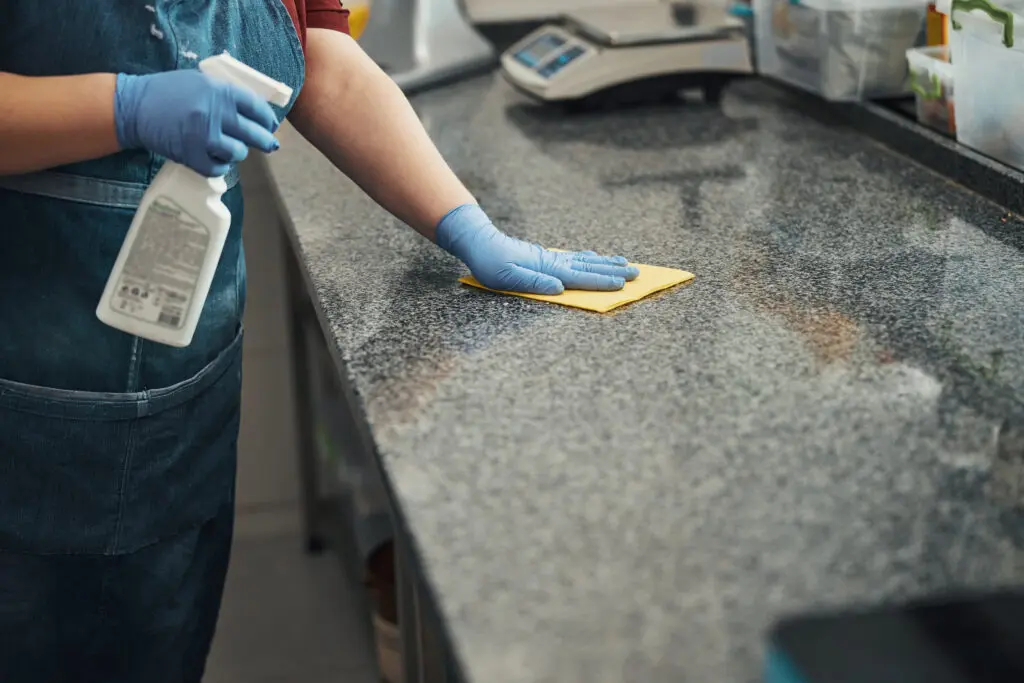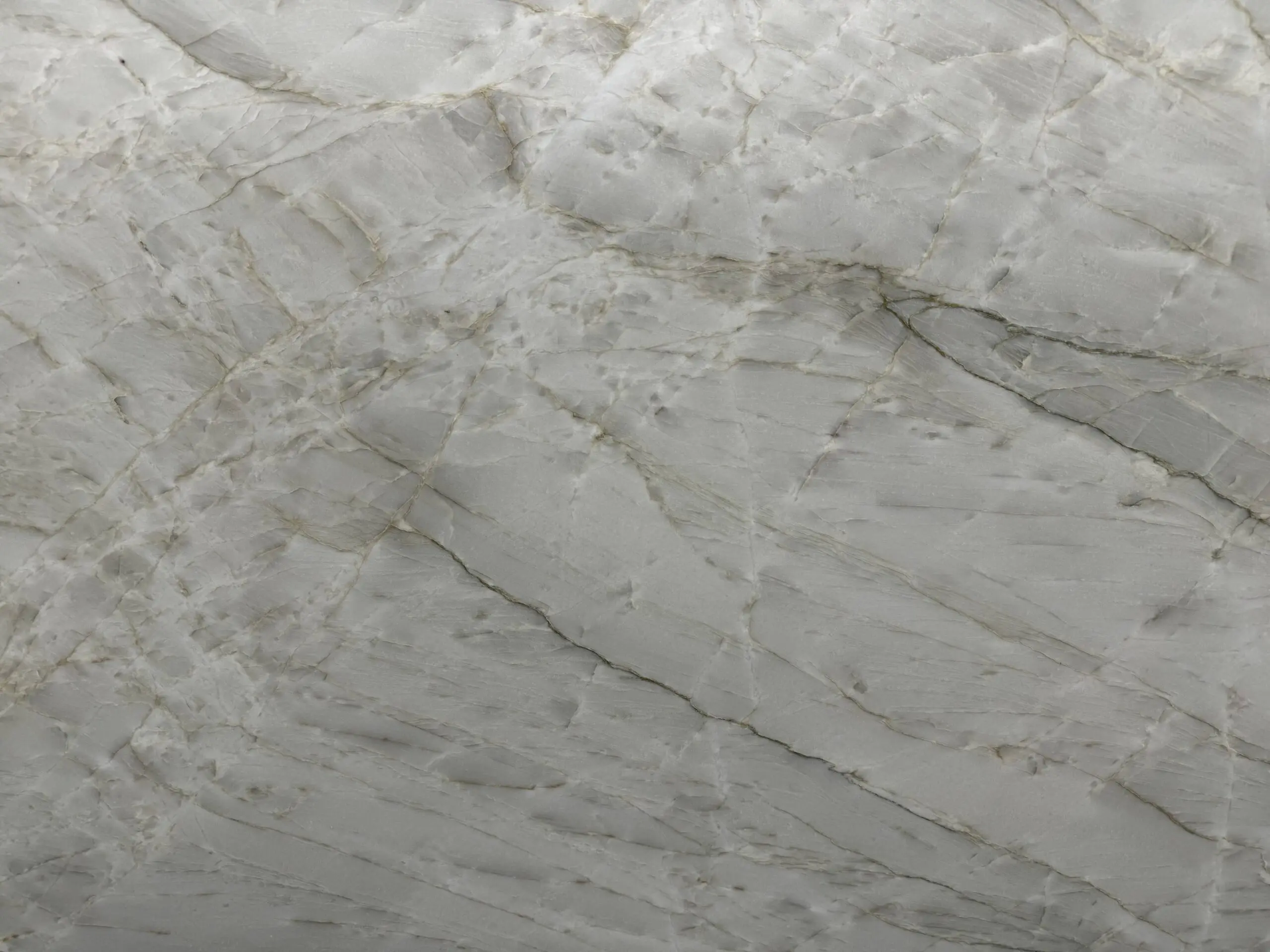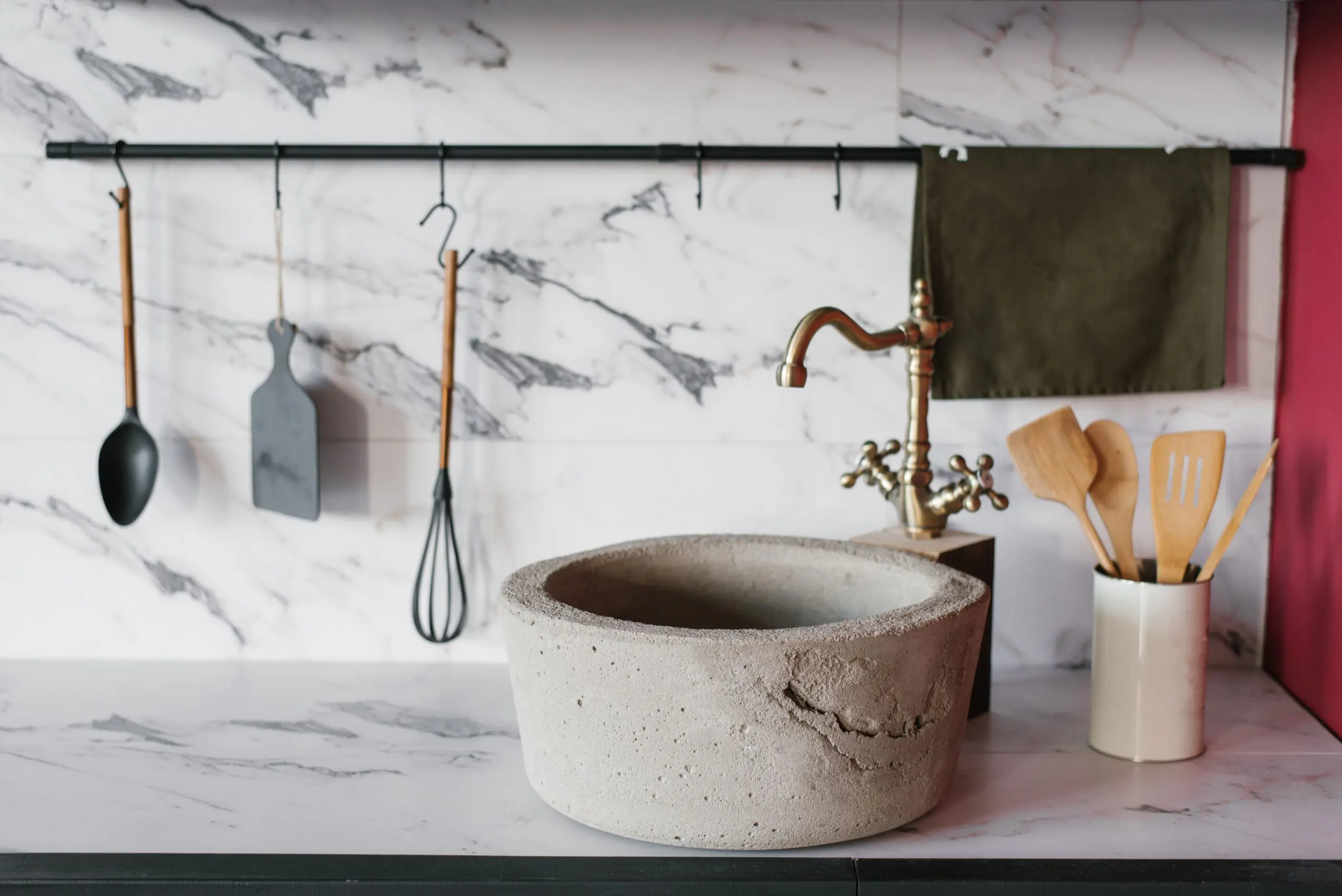Quartzite: Key Features and In-Depth Review
Quartzite is a stunning and durable natural stone known for its exceptional beauty and resilience. This article explores all aspects of quartzite, from its physical composition to aesthetic properties, maintenance procedures, and long-term care recommendations.
Physical Structure and Formation
Quartzite forms when sandstone undergoes high heat and pressure during a metamorphic process. This long and complex geological process gives quartzite its remarkable hardness and durability.
Chemical Composition:
- Primarily composed of 90-99% silica (SiO2).
Crystal Structure:
- Dense and compact mineral bonds make quartzite highly durable.
Formation Period:
- Quartzite is formed over millions of years, resulting in its unique physical characteristics.
Hardness and Durability Analysis
Mohs Hardness Scale:
- Level 7: Quartzite is harder than glass (5.5) and most natural stones.
Resistance to Wear and Scratches:
- Quartzite is renowned for its durability in high-traffic areas, making it ideal for countertops and flooring.
Aesthetic and Appearance Features
Color Variations:
Quartzite offers a diverse palette of natural colors:
- White
- Shades of gray
- Brown
- Beige
- Green
- Rare tones of blue and red
Surface Finishes:
- Polished surfaces provide a sleek and modern look.
- Matte and textured finishes are perfect for a rustic and natural ambiance.
Detailed Daily Maintenance Procedures
Maintaining quartzite’s appearance and ensuring its longevity requires proper care. However, it is essential to understand the effects of different cleaning agents.
Daily Cleaning Protocol
Materials:
- Microfiber cloth: Ideal for dust removal and delicate surface cleaning.
- pH-neutral cleaner: Reduces chemical reaction risks and protects the stone.
- Clean water: Necessary for removing chemical residues.
- Soft cloth: Recommended for drying.
Cleaning Steps:
- Remove dust with a dry microfiber cloth to minimize fine scratches.
- Apply a pH-neutral cleaner using a slightly damp cloth to preserve the stone’s structure.
- Rinse with clean water to avoid residue buildup, which can lead to stains or wear over time.
- Dry completely with a soft cloth to prevent water spots.

Stain Prevention Strategies
While quartzite can stain if not cared for properly, improper use of cleaning agents can also damage the surface. The following steps are suggested and should be applied carefully:
Water-Based Stains:
- Wipe immediately to avoid mineral deposits.
- Use a slightly damp cloth, ensuring excess moisture doesn’t harm the surface.
- A mixture of 50% water and 50% white vinegar can be effective but should be avoided if no protective sealant is applied.
Oily Stains:
- Specialized oil-removing cleaners can be used, but ensure compatibility with the stone.
- Cornstarch or baking powder can help absorb oil stains when applied directly.
Organic Stains (Tea, Coffee, Juice):
- Hydrogen peroxide can be effective, but ensure it’s used on a sealed surface.
- Mild detergents or special stain removers may work without overly stressing the stone.
Critical Precautions:
Certain cleaning agents can damage quartzite over time. Avoid the following whenever possible:
- Chlorine-based products: May discolor the stone and lead to structural damage.
- Ammonia-based cleaners: Can dull the surface.
- Acidic products: May cause surface erosion.
- Abrasive sponges and hard brushes: Can create micro-scratches.

Professional Maintenance and Protection Techniques
Protective Coating Options:
Applying a protective coating can be considered for long-term care. Without a coating, quartzite may be more susceptible to stains and wear.
- Silicone-based sealants can enhance water and stain resistance.
- Nano-technology products offer additional chemical resistance.
Maintenance Frequency:
- Daily: Quick cleaning maintains the stone’s brilliance.
- Weekly: Detailed cleaning prevents stains from setting.
- Monthly: Deep cleaning ensures long-term durability.
- Yearly: Professional inspection and cleaning address hidden issues.
Potential Issues and Solutions
Stain Issues:
- Permanent stains can compromise the stone’s integrity. Specialized cleaners are recommended for such cases.
Scratch and Damage Management:
- Surface Scratches: Can often be restored with special polishes.
- Deep Scratches: May require professional intervention to maintain structural integrity.
Expert Recommendations and Long-Term Care Strategies
Daily Usage Tips:
- Use a cutting board to minimize scratch risks.
- Support heavy objects to prevent surface damage.
- Place hot pans on trivets to protect against thermal shock.
These methods can help preserve both the aesthetic and structural qualities of quartzite, ensuring it remains a valuable addition to any space.
Quartzite: Key Features and Considerations for Investment
Quartzite is a stunning and durable natural stone known for its exceptional beauty and resilience. This article explores quartzite’s features, investment tips, and common questions to help you make an informed decision.
Things to Consider When Investing in Quartzite
Quality Selection:
Quartzite’s quality can vary. Always purchase from a trusted supplier to ensure durability and authenticity. A high-quality quartzite guarantees long-term satisfaction and minimizes maintenance concerns.
Professional Installation:
Proper installation maximizes quartzite’s strength and beauty. Hiring experienced professionals ensures that the stone is securely fitted and enhances its visual appeal.
Routine Care:
Although quartzite is relatively low-maintenance, cleaning it regularly and using protective sealers can keep it looking like new. This practice prevents stains and prolongs the stone’s lifespan.
Additional Questions About Quartzite
1. Is Quartzite Suitable for Kitchen Countertops?
Yes, quartzite is ideal for kitchen countertops. It withstands scratches, heat, and acidic spills, making it a durable choice for busy kitchens. With proper care, it maintains its elegance for years.
2. How Is Quartzite Different from Marble?
Quartzite is harder and more resistant to chemicals than marble. While marble is softer and more prone to scratches and etching, quartzite offers better durability, especially in high-traffic areas.
3. What Colors Does Quartzite Come In?
Quartzite is available in shades of white, gray, beige, and pink. Rare varieties feature tones of green, blue, and gold, making it a versatile option for various design preferences.
4. Are Any Chemicals Harmful to Quartzite?
While quartzite is durable, harsh chemicals should be avoided. Using mild soapy water and a soft cloth is sufficient for regular cleaning. Avoid chlorine, ammonia, and acidic cleaners, as they may damage the surface over time.
5. Can Quartzite Be Used Outdoors?
Yes, quartzite is perfect for outdoor use. It resists UV rays and doesn’t fade, even with prolonged sun exposure. Its durability makes it suitable for patios, pathways, and outdoor kitchens.
6. Why Is Quartzite More Expensive Than Other Stones?
Quartzite’s rarity, the skilled craftsmanship required for cutting and finishing, and its durability contribute to its higher cost. However, it’s a worthwhile investment for its long-term benefits.
Conclusion: Quartzite – The Perfect Choice for Elegance and Value
Quartzite proves to be a timeless, durable, and elegant choice for any home. Whether you’re upgrading your kitchen, bathroom, or outdoor space, quartzite enhances both aesthetics and property value. It’s not just a design statement—it’s a smart investment.
Visit United Granite and Quartz Inc. for the Best Quartzite Selection
At United Granite and Quartz Inc., we offer a wide range of high-quality quartzite options to suit your style and needs. Visit our showrooms in Hillsborough Township or Parsippany, New Jersey, to explore our collections, including:
- Quartzite
- Granite
- Marble
- Soapstone
- Quartz
Our expert team will guide you in finding the perfect stone for your home. Contact us today at info@unitedgranitenj.com or visit our website to learn more.


